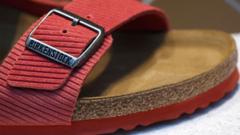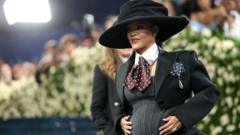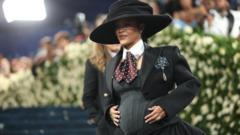In a significant ruling, a German court has determined that Birkenstock sandals, while fashionable and popular, do not meet the criteria to be classified as works of art under copyright law. The decision stems from the company's attempt to prevent rivals from producing knock-offs of its cork-soled footwear by arguing that their designs could be considered artistic. The court ruled that the sandals are functional items designed for comfort and utility, thereby lacking the necessary individual creativity required for copyright status.
Birkenstock Sandals: Art or Practical Design? German Court Weighs In

Birkenstock Sandals: Art or Practical Design? German Court Weighs In
A German court rules against Birkenstock's claim to copyright protection for its iconic sandals, seeing them as practical items rather than art.
Birkenstock has enjoyed a recent resurgence in popularity, partly due to their appearance in the 2023 hit Barbie movie, where actress Margot Robbie donned a pink pair, driving consumer interest. The brand, which once seemed outdated, has transformed into a billion-dollar empire valued at around $8.6 billion following its New York Stock Exchange listing in 2023. This vast growth reflects changing perceptions of the sandals, which have long transitioned from being considered uncool to must-have fashion statements endorsed by celebrities like Kate Moss.
Despite the court's ruling, Birkenstock remains determined to protect its brand and products from imitation, stating it will vigorously pursue all legal avenues to fend off competitors. The court's judgment from the Federal Court of Justice concludes a legal endeavor that saw conflicting decisions from two lower courts, illustrating the complexities surrounding the definitions of art and design in legal contexts. Reaffirming the ruling, presiding judge Thomas Koch noted that significant individuality in design must exist for copyright protection. Meanwhile, the company continues its mission to defend its "iconic design" amidst a wave of unauthorized reproductions.
Despite the court's ruling, Birkenstock remains determined to protect its brand and products from imitation, stating it will vigorously pursue all legal avenues to fend off competitors. The court's judgment from the Federal Court of Justice concludes a legal endeavor that saw conflicting decisions from two lower courts, illustrating the complexities surrounding the definitions of art and design in legal contexts. Reaffirming the ruling, presiding judge Thomas Koch noted that significant individuality in design must exist for copyright protection. Meanwhile, the company continues its mission to defend its "iconic design" amidst a wave of unauthorized reproductions.






















